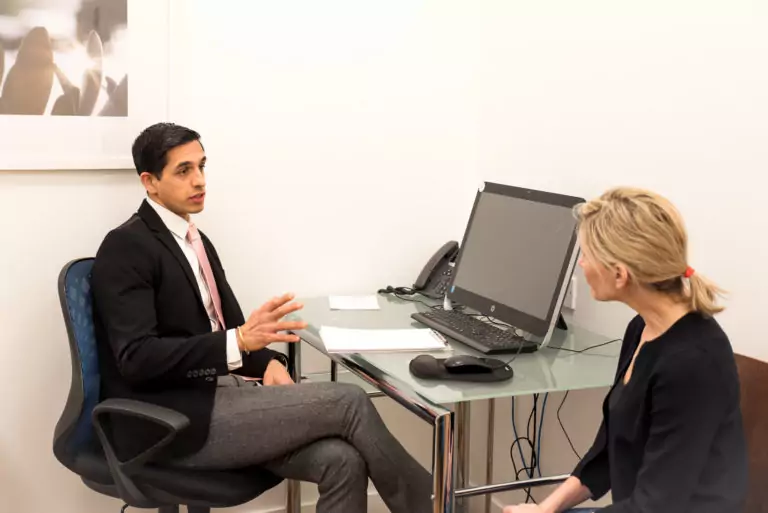Conditions
There is a large range of conditions we treat. Whatever your condition we have the best answer for you.

Types of conditions
Conditions treated.
Our bladder care experts can help you through this.

Indepth
Conditions Explained.
01.
Overactive Bladder
A common condition that affects women and men. Brought about from either an electrical or muscular tissue within the bladder. Coffee, alcohol, and fizzy drinks may be triggers. This may require the use of several pads a day. The symptom complex is characterized by
- Urinary frequency, passing urine too frequently during the day or night
- Urinary urgency, sometimes a desperate distressing urge signal from the bladder to pass urine that cannot be postponed and can lead to urinary leakage,
- Leakage of urine with little or no warning
This can sometimes be treated with lifestyle modification, perhaps some oral medications, a the regime of bladder training, or a discussion about nerve stimulation or bladder botox therapy.
02.
Urge Urinary Incontinence
A condition that is commonly seen together with overactive bladder. It is associated with distressing leakage of urine that comes suddenly often without warning or when unable to reach the toilet in time. This may require the use of several pads a day. Treatment involves treating the underlying overactive bladder as mentioned above.
03.
Stress Urinary Incontinence
Another very common condition that is associated with distressing leakage of urine that comes with exertion, exercise, lifting groceries, laughing, walking and coughing. This may also require the use of several pads a day. This tends to occur as we all get more senior in age, after childbirth for ladies, and after prostate cancer surgery for men. We will streamline prompt diagnostics, work with pelvic floor physiotherapy and then urodynamic testing if required.
04.
Recurring Urinary Infections
Again a condition that affects a huge number of ladies and men. If it’s cystitis, a bladder-related infection, this can cause awful symptoms such as burning during the passage of urine, weeing glass shards’, pain in the bladder, and urinary frequency. If this is left untreated it can sometimes cause a kidney infection, which can be more serious, causing temperatures/shiveryness, body weakness, loin/back pain and sometimes requires admission to hospital for intravenous antibiotics. Recurring urinary infections can affect many, and so we give our patients a personalized plan after a thorough assessment to give them strategies to protect the bladder from infection over time.
05.
Enlarged Prostate
A vast proportion of men over 50 years will develop an enlarged prostate which causes an obstruction to the flow of urine and knock-on effects on bladder behavior due to the back pressure it can create. These symptoms can include voiding symptoms such as poor or weak stream/flow, whilst others may develop more overactive bladder symptoms and lots of night time symptoms. We help you with a prompt diagnostics process and support you with a management plan. There are some surgical treatments that can only be provided in a hospital setting, and we can help guide you through which one would be best for you.
We are connected with several hospital systems to streamline this for you.
06.
Pelvic Organ Prolapse
Due to a weakness in the pelvic floor, some of the pelvic organs may start to prolapse downwards through the vagina, causing pain, discomfort, bladder symptoms and bowel issues. We can support with a prompt assessment of this and establish a personalised management plan for you.
07.
Neuropathic Bladder
This is a common occurence where the bladder function is altered after a nerve injury. Common causes include multiple sclerosis, stroke, parkinsons, diabetes, or spine injury. This can cause urinary retention, urinary incontinence, urinary infections, or a mixture of all of these.
08.
Radiation Cystitis
This can occur when the behaviour of the bladder changes after radiotherapy to the pelvis for cancer of the bladder, prostate, gynaecological or colorectal tract. The bladder can become smaller in it’s capacity and less able to hold urine causing incontinence. The bladder wall may also be damaged, causing blood in the urine.
Pregnancy and Childbirth
09.
Prolapse
Pregnancy and childbirth have been shown to be the biggest risk factors for pelvic organ prolapse (POP), affecting up to 10% of pregnant or post natal women. Symptoms include the sensation of a lump coming down from the vagina and/or associated symptoms such as lower back pain, dragging or pulling or discomfort. Whilst the mainstay of treatment is generally conservative in the initial postnatal period with lifestyle advice (weight loss, smoking cessation, managing constipation and avoiding high impact activity/training regimens), measures such as pelvic floor muscle training, pessaries to provide structural support and even surgical options can be explored.
It is never to soon to discuss with your gynaecologist or obstetrician what measures you can take to minimise the risk of POP as well as how you are better able to recognise and manage POP should it present. Moreover , The London Bladder Clinic facilitates access to a range of management options available to address your individual symptoms.
10.
Urinary Tract Infections
Urinary tract infections (UTIs) can affect upto 10% of pregnant women. Often caused by the bladder not completely emptying (urinary retention) or the physical obstruction of the pregnant uterus on the flow of urine from the kidneys through to the bladder.
Whilst your midwife and obstetrician will regularly check your urine for various important conditions throughout your pregnancy, often management in the antenatal period is varied and ineffective at dealing with UTIs. Our specialists at The London Bladder Clinic have more than 17 years clinical experience in both antenatal and female lower urinary tract symptoms and can offer a range of investigations and evidence based treatments, recommendations, advice and guidance.
11.
Urinary Incontinence
As mentioned elsewhere, Urinary Incontinence can be broken down into either Stress Urinary Incontinence (SUI) or Urge Urinary Incontinence (UUI) In pregnancy, both SUI and UUI can be relatively common , effecting as much as 75% and 40% of pregnant women respectively.
SUI is characterised by the sudden loss of urine following an exertional movement such as lifting/ running or strenuous activity such as coughing, straining when constipated or sneezing. The primary approach to treatment is early recognition and pelvic floor muscle training, even during pregnancy, which helps instil good practice habits and commitment throughout the pregnancy and post natal period.
UUI is characterised by leakage of urine with a preceding, often uncontrollable, sensation to pass urine. Often linked to the physiological hormonal changes in pregnancy which go on to affect the kidneys and bladder, again treatment options The London Bladder Clinic can offer vary from bladder retraining advice, fluid and lifestyle modifications and even specialist medication safe in pregnancy and whilst breast feeding.
Whilst your midwife and obstetrician will regularly check your urine for various important conditions throughout your pregnancy, often management in the antenatal period is varied and ineffective at dealing with UTIs. Our specialists at The London Bladder Clinic have more than 17 years clinical experience in both antenatal and female lower urinary tract symptoms and can offer a range of investigations and evidence based treatments, recommendations, advice and guidance.
